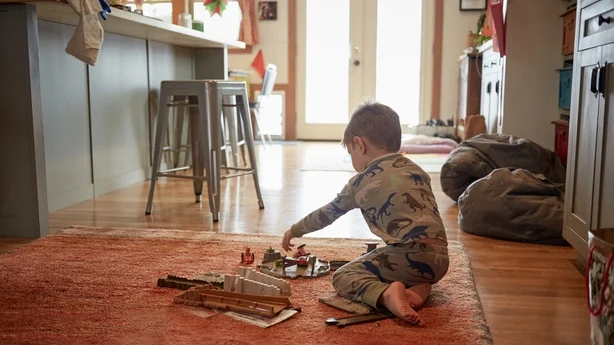Stay updated with the latest beauty tips, trends, and news from our salon experts. Our blog is your go-to source for all things beauty.
It’s rare to get through Christmas without at least one family row. Whether it’s your brother-in-law kicking off because someone ate the last Quality Street or your mum griping because no one praised the turkey enough – and that’s just the adults.
As a time full of good cheer, it’s also chockfull of late nights, excessive amounts of sugar and anticipation, aka the perfect environment for your excited toddler (or teen) to morph into a terror.
"With it being a hectic time of year, there may be an increased likelihood of your child having tantrums as they adapt to a changing schedule, and even the odd meltdown in response to the sensory overload of the season," says Matt Buttery, CEO of Triple P UK and Ireland. "As a parent, it is important to remember that tantrums are a normal part of children’s development. In toddlers, temper tantrums are often caused because they lack the emotional skills to deal with big emotions such as anger and frustration."
Here’s what to keep in mind…
They need more of a routine
Schedules can go out of the window during the holidays. "You may travel, have family to stay, or stay up later than usual. Children may not react well to this much change," says Buttery. "Try establishing a regular routine around meal and sleep times as much as possible, it may help your child feel more relaxed as they know what to expect, thus reducing the likelihood of them feeling overwhelmed. On Christmas day, it can be useful to agree on a specific time that you all wake up and open presents."

They’re overwhelmed by the festive pressure
"If you know your child can easily get overwhelmed, you may want to encourage them to open any presents they receive over a few days, rather than just on 25 December," recommends Buttery. "This not only spreads the fun over numerous days for your child, but it also reduces the possibility of them being agitated or overwhelmed by the pressure of one big day."
He adds: "If you think a tantrum or meltdown is imminent, a positive approach is to ask them to stop what they are doing and find a quiet space with you to work out what’s wrong. For example, if they are upset and shouting, ask your child to take some deep breaths and try to tell you what’s upsetting them, so that you can get to the bottom of the issue. If they do as you ask, be sure to praise them straight away."

They’re disappointed with a gift
Your child has likely been looking forward to Christmas for months. "There are a lot of fantasies surrounding Christmas and disappointments happen when these ideas are not what children experience," says Dr Gisele Caseiras, a psychodynamic psychotherapist who works with families at Likeminds London.
"It is natural that the child will, from time to time, get disappointed. The crucial thing is acknowledging and validating your child’s frustration and disappointment. Say something, like: ‘Oh no, it looks like you didn’t get what you were expecting this Christmas. Tell me what was in your mind.’ When you acknowledge and validate their feelings, you can open up conversations that will go beyond the gift itself."
Buttery adds: "Young children may need more support around learning that their demands cannot always be met, and all children have a desire to feel they are heard. If you give in to your child’s tantrums, this can teach them that this behaviour gets results, making them more likely to occur in future. Praising your child’s positive behaviour when it occurs is really important, for example asking calmly for what they want or coping when you say ‘no’."

They won’t eat their Christmas dinner
It’s hard to not feel frustrated, even resentful, when you go to the trouble of cooking an epic Christmas dinner, only for your kids to demand toast or cheesy pasta instead. It takes time for children and teenagers to appreciate the effort that goes into making all the trimmings, says Caseiras: "Try to strike a balance while keeping a calm environment, and offer the child some foods they usually eat well, while sampling the Christmas options.
"Before Christmas, share your traditions with your child and explain why certain foods are important to your family. Explain how they are prepared and try to convey how the cook dedicates so much time, effort, and love to the meal. Even if they don’t enjoy the taste or the food itself, they can appreciate the tradition that goes into preparing a Christmas meal." And avoid force feeding anyone sprouts – it doesn’t work!

They’ve been cooped up indoors too long
You can’t go wrong with a walk on Christmas Day, but it’s not just December 25 you’ve got to think about – staying active and spending time outdoors throughout the holidays will help your kids burn off energy, stay social and sleep better – all of which will help reduce the chance of tantrums.
Put phones away and prioritise time together, says Caseiras. "Christmas time can be busy for parents as they work and prepare for the logistics of the holiday. Make time to spend quality time with your child. Sometimes, it is more about quality than quantity; join in when your child is playing and have fun with them too!"